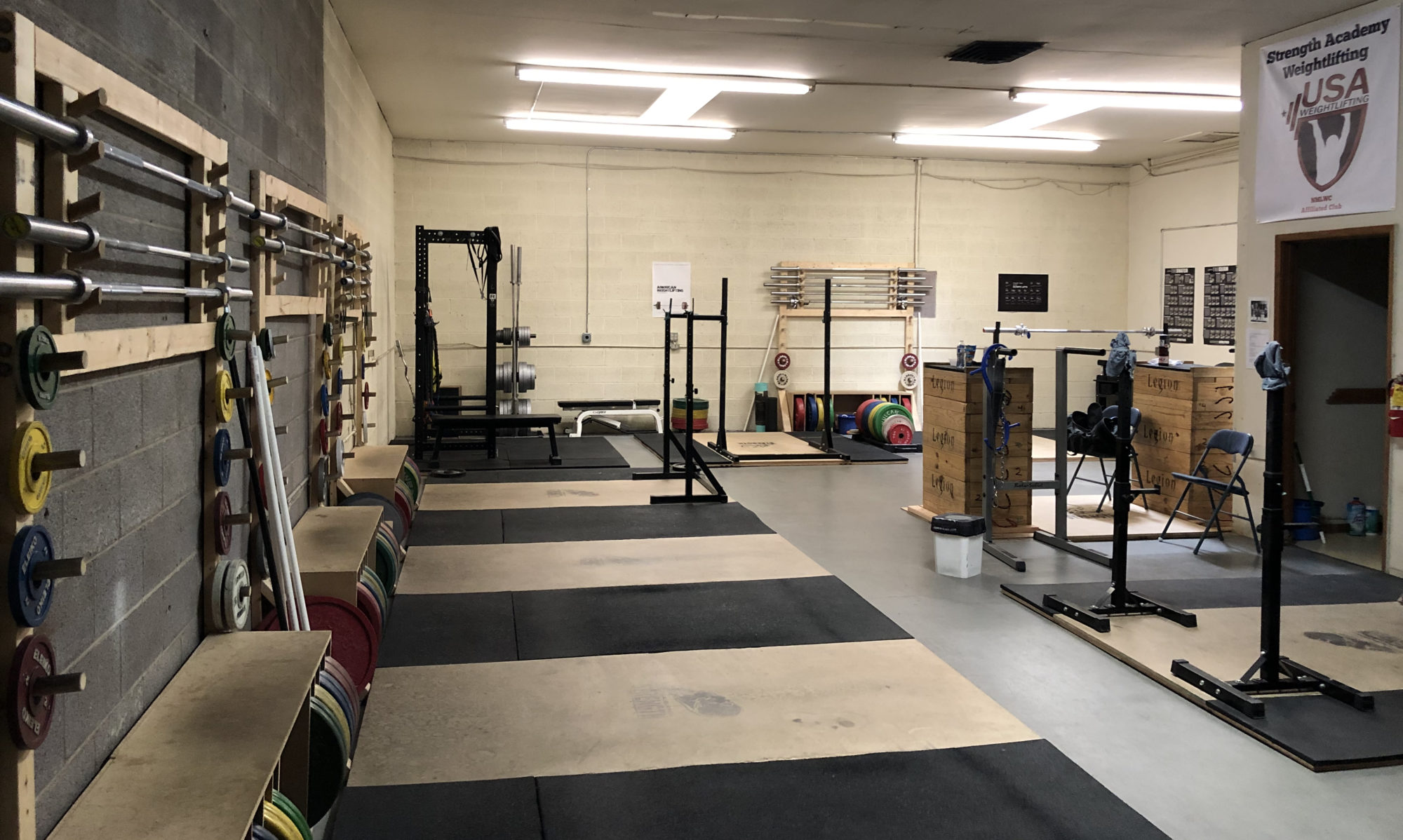Our would be mascot at Albuquerque Strength Academy is the infamous Sisyphus. The story of Sisyphus begins at the end of his life, wishing to postpone his journey to the underworld he developed a scheme. Sisyphus tricked the god Hades, and having bound him, left him in a closet within his home. When the gods discovered what had happened, they were furious. They sentenced him to an eternity of rolling an enormous boulder to the peak of a mountain, only to watch it roll down to the base and the process began anew. His eternal afterlife was to toil and strain only to accomplish nothing in the end, adding to the madness of his sentence. Imagine yourself in this position, exerting yourself day after day in a never ending loop, knowing full well that at the end of the day that boulder will once again be at the bottom of the mountain. If you are a weightlifter you already know this feeling all too well.
The Absurd
It is natural for us as human beings to seek meaning in the universe, you want to believe that what you do matters in a real way. Our time on this earth is short, and our pursuit of meaning is a way to make our inevitable demise seem less frightening. But the universe doesn’t care that you are scared, and the world as we know it is chaotic and lacks any true objective meaning. This clash between our pursuit of meaning and the lack of our ability to find it in any measurable way is what is referred to as the absurd. Trying to find meaning in a meaningless world. The use of Sisyphus as a metaphor, by Albert Camus, for the absurd is what draws me to him as an icon. In a world without purpose, we are all like Sisyphus. Working day after day, knowing deep down that in the end what we are doing lacks meaning.
At first this realization can be met with despair, and leave you feeling like there is no reason to continue with the futility of our modern lives, but don’t you worry. If nothing matters, we are free do determine our own meaning for the world, giving ourselves our own purpose. You don’t have to listen to the herd and blend in, you can choose your own path. A path that gives your life meaning and isn’t dependent on the universe giving you anything. The idea is Sisyphus, knowing his task is meaningless, chooses to spite the gods by enjoying the details of his work.
“I leave Sisyphus at the foot of the mountain. One always finds one’s burden again. But Sisyphus teaches the higher fidelity that negates the gods and raises rocks. He too concludes that all is well. This universe henceforth without a master seems to him neither sterile nor futile. Each atom of that stone, each mineral flake of that night-filled mountain, in itself, forms a world. The struggle itself toward the heights is enough to fill a man’s heart. One must imagine Sisyphus happy.”- Albert Camus
And so must we find the things in our daily struggle that we can enjoy, the feeling of the chalk on our hands, the weight of the bar on our backs, the numbness in our faces after a heavy lift, all forming a world. In this way we can live in our present moment, and choose what gives us meaning on a personal basis.
Weightlifting
The most obvious connection to Sisyphus is how his struggle relates directly to the challenges of daily training. Success in Weightlifting is fleeting at best, and if you are seeking happiness through only your results, your satisfaction will be short lived. We train, three to five days per week for weeks on end, for the chance to spend six minutes on the platform. Holding our achievements over our heads for the fraction of a second needed to get a down signal, only to watch them fall to the ground once again. To someone on the outside it may seem futile to work as hard as we do, day after day, seeming to get little to nothing in return. However, we lifters know the truth. It is not the weight being overhead that matters in the end, it is the process that gives us meaning day to day.
Meaning
Sometimes the world seems bleak, unfair, and devoid of meaning. Like many people, I occasionally struggle with depression. Before I found Weightlifting I frequently felt adrift and lost, having nothing to pour myself into. I won’t say that after training I never struggle with despair, but in those moments having time focused on Weightlifting has been more meaningful than I can express. Those times when it is just you and the bar, everything else fades away, and for a moment all that exists is the next lift. The universe won’t provide me a meaning, so I choose that meaning to be a pursuit of physical strength, and helping others to find the sense of fulfillment I find in the training process. Don’t worry yourself about what the herd tells you is important, they are no more right than anyone. While our passion may seem arbitrary, tedious, and meaningless from the outside, we know that every atom of that barbell creates a world. We create our own meaning. We create our own happiness.
